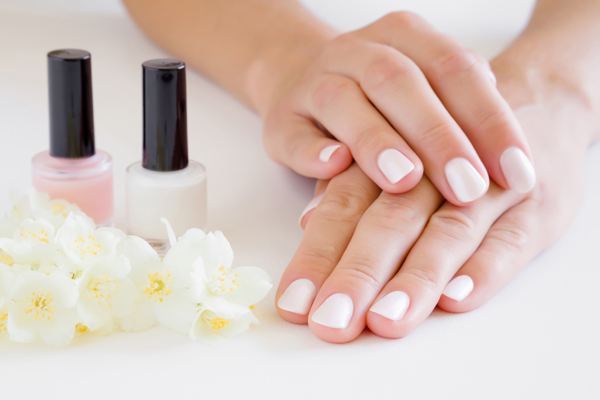
Breaking a nail is one thing. Breaking a nail-biting habit is another, say member dermatologists from the American Academy of Dermatology. Nail biting typically begins in childhood and can continue through adulthood, and the side effects can be more than cosmetic. That’s why you should stop biting your nails, because manicures are expensive and skin staph infections aren’t pretty.
“Chronic nail biting can cause serious problems,” said board-certified dermatologist Margaret E. Parsons, MD, FAAD, associate clinical professor of dermatology, University of California, Davis. “In addition to making the skin around your nails feel sore, repeated nail biting can damage the tissue that makes nails grow, resulting in abnormal-looking nails. It can also leave you vulnerable to infection as you pass harmful bacteria and viruses from your mouth to your fingers and from your nails to your face and mouth.”
To help patients kick the habit, Dr. Parsons recommends the following tips:
Keep Them Short
You might like the look of long nails, but sometimes the temptation can be too great. So try a new style by sporting shorter nails. Sure, it might take a little time to get used to, but having less nail provides less to bite — and is less tempting, too.
Make The Biting Bitter
If chewing on your nails is a hard habit to break, you can look for ways to make the nibbling more nauseating. Mavala Switzerland is a polish you can apply over your manicure, and its bitter taste will keep you from putting your fingers in your mouth. Plus, it won’t ruin the look of your nails, either.
Get Regular Manicures
You might need to find a way to make your nails less palatable. Spending money to keep your nails looking attractive may make you less likely to bite them. Alternatively, you can also cover your nails with tape or stickers or wear gloves to prevent biting. Hey, it might not be as pretty, but it will probably work.
Find A New Habit
They say it takes 21 days to form a new habit, and nail-biting is one of them. When you feel like biting your nails, try playing with a stress ball instead. This will help keep your hands busy and away from your mouth.
Identify Your Triggers
These could be physical triggers, such as the presence of hangnails, or other triggers, such as boredom, stress or anxiety. By figuring out what causes you to bite your nails, you can figure out how to avoid these situations and develop a plan to stop. Just knowing when you’re inclined to bite may help solve the problem.
Start Slowly
If you thought that you could just stop biting your nails, think again. Gradual is the way to go with this, and any other bad habit, really. Try to stop biting one set of nails, (such as your thumb nails), first. When that’s successful, eliminate your pinky nails, pointer nails, or even an entire hand. The goal is to get to the point where you no longer bite any of your nails.
“For some people, nail biting may be a sign of a more serious psychological or emotional problem,” said Dr. Parsons. “If you’ve repeatedly tried to quit and the problem persists, consult a doctor. If you bite your nails and develop a skin or nail infection, consult a board-certified dermatologist.”



